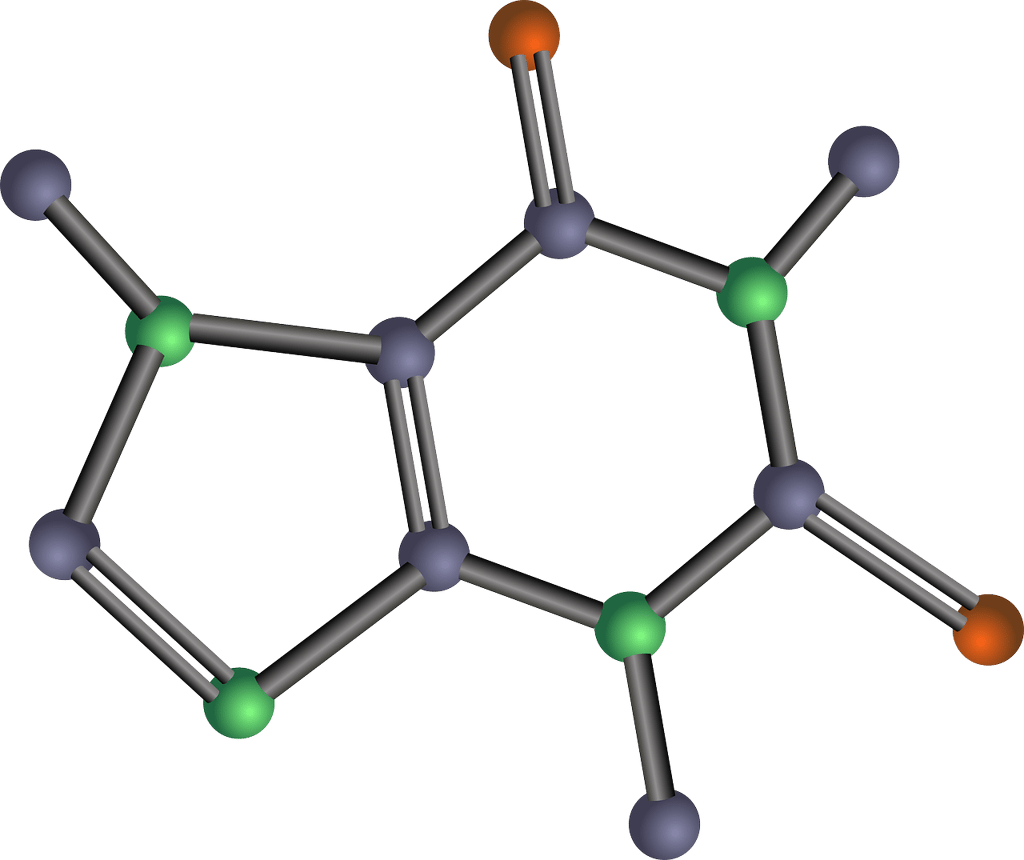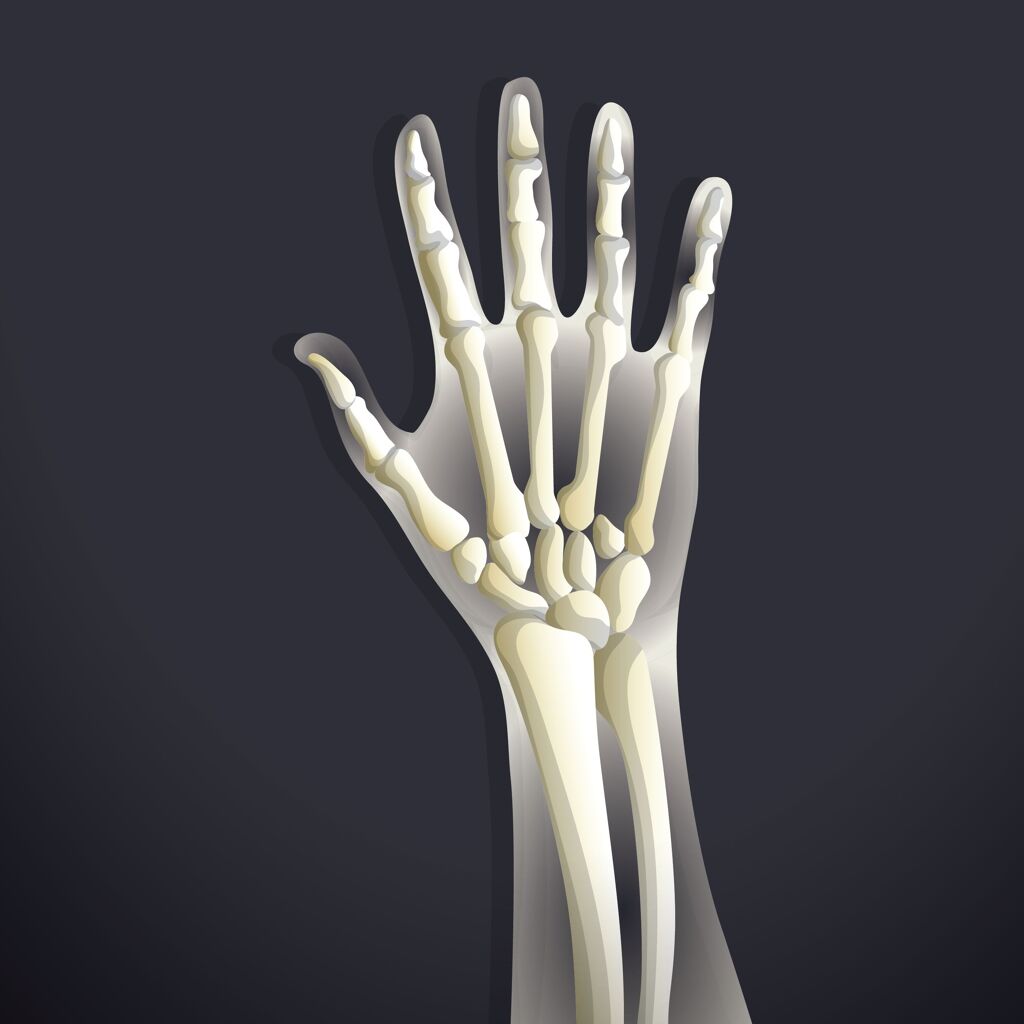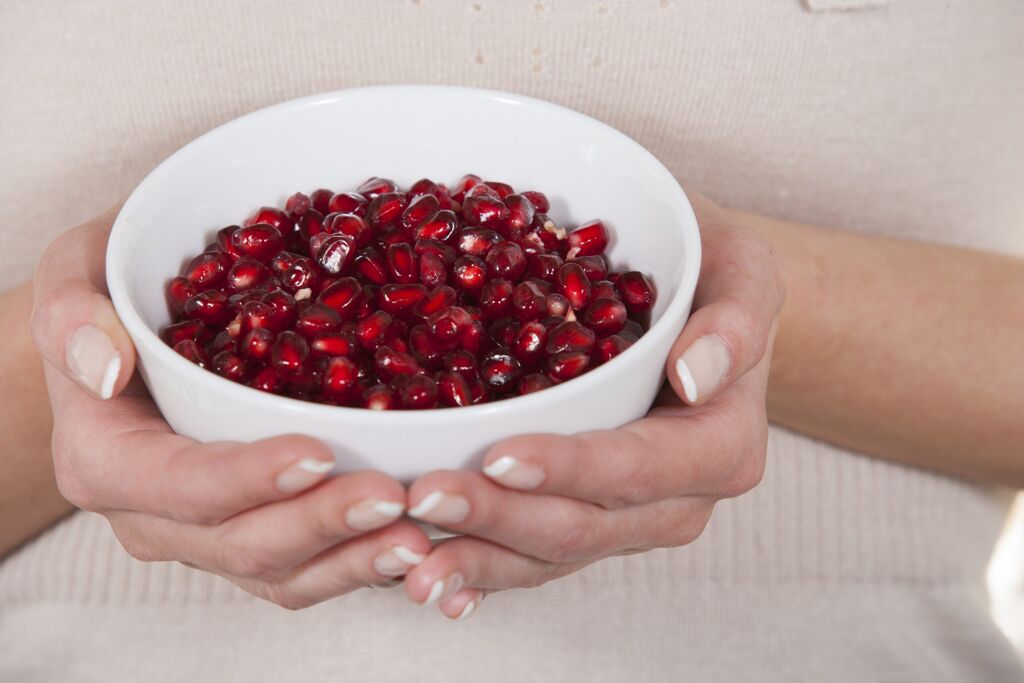Peptide Therapy: Vasoactive Intestinal Polypeptide (VIP)

Next in our Peptide Series, we take a look at a different peptide called Vasoactive Intestinal Polypeptide or VIP. It is used to treat a large number of conditions. Like other peptides, it can provide a novel remedy to chronic health issues. It is especially good for immunity and fighting inflammation. Please read on for the details!
** Please note: If you want the short summary version of this article with a video, then please click here **
A peptide is a small protein, made up of a chain of amino acids. We have recently written many blogs about peptides. Click on the links to see our articles on peptide therapy, HGH, CJC 1295/Ipamorelin, BPC 157, PT 141 and Ta1.
What Is VIP?
VIP is more complex than some of the other peptides we have looked at before. It is a neuropeptide, or a protein produced by neurons or nerve cells. VIP modulates (regulates) our neurons (nerve cells). VIP is a neurotransmitter. A neurotransmitter is a chemical messenger transmitting messages between nerve cells and nerve cells and muscles. Neurotransmitters allow our nerves to talk to each other. Therefore, VIP is part of the messaging system of our nerve cells.
VIP, as a peptide, is a chain of 28 amino acids (Iwasaki M, 2019). It has a regulatory effect on many areas of the body and therefore has widespread benefits. Let’s look at a few of them.
- It is involved in different organ systems: the gastrointestinal, respiratory, cardiovascular, immune, endocrine, and central and peripheral nervous systems (Iwasaki M, 2019). It has widespread effects on these organ systems and this has made it a bit challenging to clearly analyze as it does so much (Iwasaki M, 2019).
- It is an immune regulator (Delgado M, 2013), an anti-inflammatory and is involved in the regulation of carcinogenesis, the immune response and circadian rhythms (Iwasaki M, 2019).
- It is a vasodilator; it opens (dilates) blood vessels allowing blood to flow more easily (Walsh JH, 1994). It regulates smooth muscle activity, epithelial cell (skin cells) secretion and blood flow in the gastrointestinal tract (Walsh JH, 1994).
To Read About Blog Topic, Scroll Down
Want To Work With Our Clinic?
Do you have a chronic or mystery illness that no one has been able to help you with? Are you simply wanting to re-connect with a healthier version of yourself? It’s Time To Finally Feel Better!
What can VIP do?
Many of the benefits of VIP are related to its anti-inflammatory properties. Excessive uncontrolled inflammation can lead to tissue damage, organ failure and even death (Delgado M, 2013). VIP affects immune responses and inflammation (Delgado M, 2013).
- VIP is anti-inflammatory and induces immune tolerance (Sanlioglu AD, 2012). Immune tolerance is a process through which our immune system becomes trained not to OVER react. Autoimmune disease is an example of our immune system overreacting. For this reason, VIP is an emerging therapy for autoimmune diseases such as rheumatoid arthritis (RA), ulcerative colitis, multiple sclerosis, uveoretinitis and type 1 diabetes (Sanlioglu AD, 2012). It has been tested in clinical trials of obstructive pulmonary disease, pulmonary hypertension, sepsis and migraine (Sanlioglu AD, 2012).
- Treatment with VIP decreases symptom frequency and severity in various diseases; sepsis, pancreatitis, hepatitis, respiratory inflammatory disorders, neurodegenerative disorders, inflammatory bowel disease, type I diabetes, multiple sclerosis, Sjogren’s syndrome, RA and other autoimmune diseases (Delgado M, 2013). It also helps with a number of other conditions; diarrhea, IBD, Crohn’s disease, sarcoidosis and cancers (Iwasaki M, 2019).
What are the Applications of VIP?
The Immune System:
VIP can limit inflammatory and immune responses and help resolve inflammation (Delgado M, 2013). It downregulates many pro-inflammatory cytokines such as TNF-α, IL-6 and other inflammatory molecules, and mediators of oxidative stress, at both systemic and local levels (Delgado M, 2013). The anti-inflammatory effect may result from its involvement in T cells (a type of immune cell) differentiation (Iwasaki M, 2019). VIP increases regulatory T cell production while inhibiting macrophage pro-inflammatory actions, all contributing to its anti-inflammatory effects. (Iwasaki M, 2019)
This means that it can help with immune disorders (Delgado M, 2013). The immune-modulating effects of VIP makes it able to treat acute and chronic inflammatory and autoimmune diseases (Iwasaki M, 2019).
Food Allergies:
VIP can help improve a food allergy response by stabilizing certain immune cells and helping to recover the immune regulatory function (Zeng HT, 2019). VIP inhibits a food allergy response by restoring the immune suppressive functions in certain cells (Zeng HT, 2019). This has potential for the treatment of food allergies associated with immune dysfunction (Zeng HT, 2019).
Gut Health:
VIP plays a role in many activities related to gut health. This includes vasodilation (dilation of the blood vessels) and smooth muscle relaxation, stimulation of pepsinogen secretion by cells in the gut and secretion of water and electrolytes into the intestines (White CM, 2010). Together, these actions help to facilitate overall gut motility and digestion (White CM, 2010).
VIP is crucial for gastrointestinal tract health (Bains M, 2019). It helps to maintain the intestinal epithelial barrier and act as a potent anti-inflammatory that contributes to gut bacterial tolerance (Bains M, 2019). A deficiency in VIP would alter gut microbial balance (Bains M, 2019). In mice, there are significant changes in gut bacterial composition and diversity in VIP-deficient mice compared to mice with normal VIP levels (Bains M, 2019). The changes in gut bacteria seen in VIP-deficient mice are consistent with gut microbial changes reported in certain inflammatory and autoimmune disorders (Bains M, 2019). VIP is important for maintaining microbiota balance, diversity and overall GI function, and a deficiency can result in significant gut microbiota changes (Bains M, 2019).
VIP plays a role in IBS. People with IBS with diarrhea (IBS-D) have higher levels of VIP. It seems that VIP influences the movement of bacteria in the colon (Iwasaki M, 2019). Stress-induced diarrhea observed in IBS-D patients can be treated with VIP to reduce the volume and frequency of bowel movements (Iwasaki M, 2019).
It is thought that VIP can help with inflammatory bowel diseases such as Crohn’s disease or ulcerative colitis (Iwasaki M, 2019). More research needs to be done to understand precisely how VIP can help with IBD conditions.
Diabetes:
VIP is part of a group of gastrointestinal (GI) peptides (Lupien-Meilleur J, 2020). As such, it affects vital metabolic functions, such as glucose control and management, although the mechanisms are not well understood (Lupien-Meilleur J, 2020).
VIP can stimulate and affect the production of insulin and is anti-inflammatory (Sanlioglu AD, 2012). These properties make it useful for the treatment of diabetes (Erendor F, 2020). In studies with animals, a pharmaceutical drug and VIP combo reduced hyperglycemia/ high blood sugar, improved glucose tolerance and prevented weight loss (Erendor F, 2020). This suggests VIP can be used to repress diabetes-induced inflammation, stimulate insulin production and induce an increase in beta-cells (the cells that produce insulin) (Erendor F, 2020).
Cancer:
Persistent inflammation is known to contribute to carcinogenesis, the formation of cancer in the body, and tumor progression (Hara M, 2018). VIP may affect tumor growth and differentiation. VIP can stimulate the growth of several cancer cell lines in vitro, i.e., in a test tube or Petri dish experiment (Iwasaki M, 2019).
VIP is found in liver cancer cells (Hara M, 2018). VIP acts to decrease cell proliferation and increase apoptosis (programmed cell death, which is good if cancer cells are present). Cytokines, antiviral agents and anticancer agents are often used in combination to treat liver cancer (Hara M, 2018). VIP is helpful as it can induce apoptosis of malignant tumor cells. The action of VIP alone is weak; it decreased liver cell proliferation by only 20% in one study (Hara M, 2018). A combination of VIP and anticancer drugs is a better strategy to potentially inhibit cancer progression (Hara M, 2018).
VIP inhibits the spread and increase of renal carcinoma cells in kidney cancer (Vacas E, 2012). It stopped the spread of tumor cells but did not affect normal cell growth, meaning it has potential to treat renal cancer (Vacas E, 2012).
VIP suppression is protective against some cancers like breast and prostate cancers (Moody TW, 2007). Blocking VIP receptors can stop the increase and spread of lung and breast cancer cells (Moody TW, 2007). It also makes chemotherapy drugs more effective at causing apoptosis or cell death of cancer cells (Moody TW, 2007).
Mold Illness:
Dr Ritchie Shoemaker is a leading expert on mold illness and Chronic Inflammatory Response Syndrome (CIRS) which results from exposure to toxic molds, in some people. He has observed a deficiency of VIP, seen in over 98% of patients with CIRS (Shoemaker RC, 2013). Dr. Shoemaker uses a nasal spray of VIP with his CIRS patients. His VIP therapy has been found to reduce CIRS symptoms, improve inflammatory blood markers, improve hormonal levels of estradiol, testosterone and Vitamin D; and enhance quality of life in 100% of patients using a VIP spray (Shoemaker RC, 2013). He also found that VIP plays a role in immune function (Shoemaker RC, 2013).
Cardiovascular:
VIP has an effect on cardiovascular function (Henning RJ, 2001). It is important in regulating coronary blood flow, cardiac contraction and heart rate (Henning RJ, 2001).
The amount of VIP in the heart decreases as fibrosis (which can lead to heart failure) increases and becomes undetectable in end stage cardiomyopathy (Duggan KA, 2019). Replenishing myocardial (heart tissue) VIP might be a treatment for myocardial fibrosis (Duggan KA, 2019). In a recent study on rats, VIP increased myocardial VIP concentration and was able to reverse existing myocardial fibrosis (Duggan KA, 2019). This suggests VIP can help in cases of cardiac failure.
Neurodegenerative Disorders (NDDs):
Neurodegenerative disorders, like Alzheimer’s disease and Parkinson’s disease, involve the death of neurons in the brain (Deng G, 2017). Inflammation-induced neurodegeneration occurs (Gonzalez-Rey E, 2005). VIP can inhibit the neurodegeneration or neuronal death in these disorders and support neuronal survival (Deng G, 2017). It inhibits a broad range of inflammatory responses (Deng G, 2017). VIP has anti-inflammatory, anti-apoptotic and neurotrophic effects (Gonzalez-Rey E, 2005). It can be protective in several inflammatory disorders and neuroprotective in the treatment of NDD conditions (Gonzalez-Rey E, 2005).
VIP signaling has the potential to relieve cellular damage associated with cerebrovascular trauma (including stroke) and NDDs (Liao C, 2019). Poor VIP signaling is related to stress-related mental health issues like depression, post-traumatic stress disorder, chronic pain, migraine and metabolic diseases (Liao C, 2019).
Depression:
There is growing evidence that depression involves inflammation in the brain. The neuroprotective and anti-inflammatory properties of VIP can help with depression. In one study, VIP blood levels were positively associated with brain function and volume in the regions associated with emotional processing, and inversely related to symptoms of anxiety and depression in healthy females (Simon RA, 2021). VIP can potentially help with anxiety and depression, and disorders of the gut-brain axis with high psychological comorbidities (Simon RA, 2021).
Asthma & Respiratory Conditions:
VIP can be useful with chronic inflammatory lung diseases such as PAH, asthma and chronic obstructive pulmonary disease (COPD) (Onoue S, 2007). Pulmonary arterial hypertension (PAH) is a rare, progressive disorder characterized by high blood pressure in the arteries of the lungs. The pulmonary arteries are the blood vessels that carry blood from the right side of the heart through the lungs. Chronic obstructive pulmonary disease (COPD) is a chronic inflammatory lung disease that causes obstructed airflow from the lungs.
VIP can potentially help in the treatment of cardiopulmonary diseases, including PAH, asthma, and COPD. VIP helps with dilation in pulmonary blood vessels and airway smooth muscles, is anti-inflammatory and anti-proliferative (Wu D, 2011). It can regulate cell growth and survival, and modulate airway secretions (Wu D, 2011). PAH, asthma and COPD all involve inflammation, smooth muscle contraction and remodeling. VIP can potentially help to reduce pulmonary arterial pressure and broncho-constriction, improve blood circulation to the heart and lung, decrease inflammation of the heart and lung tissues and enhance wound healing of bronchial cells (Wu D, 2011). It is a promising strategy for the treatment of PAH, asthma and COPD (Wu D, 2011).
Using VIP as a Solution
Despite all of the benefits of VIP, making a version of VIP to take as a supplement or medication is a challenge (Iwasaki M, 2019). It is unstable and quickly degrades. This limits how much VIP gets into the body and how much is absorbed (Iwasaki M, 2019). It also needs to be very targeted as to where it goes in the body. Making a stable VIP with targeted delivery is needed and research is being done to figure out how to do this and get the benefits of VIP (Iwasaki M, 2019).
Does VIP have Side Effects?
Clinical trials show VIP to be well-tolerated (Sanlioglu AD, 2012). It can occasionally have minor side effects in patients (Sanlioglu AD, 2012). It is taken via a nasal spray. The nasal spray method increases how much VIP enters the brain (Cui X, 2013). The VIP nasal preparation can cause minor irritation, but in one study, this resolved spontaneously within a week at the end of treatment (Cui X, 2013). Research concludes that VIP can be delivered successfully to the brain using the intranasal spray (Cui X, 2013).
It is very important to work with an experienced Functional Medicine practitioner when taking VIP or any other peptides. Our clinic has extensive experience with peptides and can help you with VIP or other peptides.
** Please stay tuned for our next blog on Peptide Therapy **
Are You Suffering From A Chronic Illness?
Does your current health situation look like this…
- Do you feel that you have tried many things and either nothing works, or the treatment does not hold?
- Have you been told that there is nothing that can be done to reverse your illness and you just need to manage symptoms?
- Does your illness impact your work, your family, your happiness and your social life?
We specialize in finding answers and solutions for complicated chronic illness when people feel like they have tried everything. If this sounds like you, book a free call with us to see if we are the right fit for your health goals.
Dr. Miles has spoken for the following organizations:

















